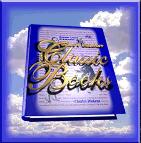World's Greatest Classic Books Feature:
Sir William Gerald Golding
Featured works:
All
Books Written By
William Golding
BOOK LINKS
abebooks.co.uk.
A&E Shop
All-Ink.com
AlphaCraze.com
Amazon.ca
Amazon.com
Amazon.co.uk
BookCloseOuts.com
Booksamillion.com
Chapters.ca
eCampus.com
MUSIC LINKS
Music123
OldGlory.com
PlayCentric
PosterNow
PushPosters
Tower Records
Died: June 19, 1993, in Wiltshire, England
Born in 1911 Saint Columb Minor in Cornwall, England, Sir William Gerald Golding was educated at the Marlborough Grammar School, where his father taught, and later at Brasenose College, Oxford. Although educated to be a scientist at the wishes of his father, he soon developed a great interest in literature, becoming first devoted to Anglo-Saxon and then writing poetry. At Oxford he studied English literature and philosophy. Following a short period of time in which he worked at a settlement house and in small theater companies as both an actor and a writer, Golding became a schoolmaster at Bishop Wordsworth's School in Salisbury. During the second world war he joined the Royal Navy and was involved in the sinking of the German battleship Bismarck, but following the war he returned to Bishop Wordsworth's School, where he taught until the early sixties.
In 1954, Golding published his first novel, Lord of the Flies, which details the adventures of British schoolboys stranded on an island in the Pacific who descend into barbaric behavior. Although at first rejected by twenty-one different publishing houses, Golding's first novel become a surprise success. E.M. Forster declared Lord of the Flies the outstanding novel of its year, while Time and Tide called it "not only a first-rate adventure story but a parable of our times". Golding continued to develop similar themes concerning the inherent violence in human nature in his next novel, The Inheritors, published the following year. This novel deals with the last days of Neanderthal man. The Inheritors posits that the Cro-Magnon "fire-builders" triumphed over Neanderthal man as much by violence and deceit as by any natural superiority. His subsequent works include Pincher Martin (1956), the story of a guilt-ridden naval officer who faces an agonizing death, Free Fall (1959), and The Spire (1964), each of which deal with the depravity of human nature. The Spire is an allegory concerning the protagonist's obsessive determination to build a cathedral spire regardless of the consequences.
As well as his novels and his early collection of poems, Golding also published a play entitled "The Brass Butterfly" in 1958 and two collections of essays, The Hot Gates (1965) and A Moving Target (1982).
Golding's final novels include Darkness Visible (1979), the story of a boy horribly injured during the London blitz of World War II, and Rites of Passage (1980). This novel won the Booker McConnell Prize, the most prestigious award for English literature, and inspired two sequels, Close Quarters (1987) and Fire Down Below (1989). These three novels portray life aboard a ship during the Napoleonic Wars. In 1983, Golding received the Nobel Prize for literature "for his novels which, with the perspicuity of realistic narrative art and the diversity and universality of myth, illuminate the human condition in the world of today," and in 1988 he was knighted by Queen Elizabeth II. Sir William died in 1993 in Perranarworthal, Cornwall. At the time of his death he was working on an unfinished manuscript entitled The Double Tongue, which deals with the fall of Hellenic culture and the rise of Roman civilization. This work was published posthumously in 1995.

Lord of the Flies
William Golding's classic tale about a
group of English schoolboys who are plane-wrecked on a deserted island is just as chilling
and relevant today as when it was first published in 1954.




